Best Manatal Alternatives in 2026: 10 Tools for Faster, More Effective Hiring

Frustrated with limited customization options and search functionality limitations in Manatal? Looking for more automation, better user interface, and additional features in your ATS? You’re not alone. Many users are also bogged down by performance issues, limited job board features, and data management challenges. If the pricing model and customer support aren’t hitting the mark, it’s time for a change. Explore these top Manatal alternatives that offer cloud based applicant tracking, more flexibility, enhanced search capabilities, and improved user experience.
Introduction to Manatal Alternatives
Manatal is a recruitment software designed to simplify the hiring process for businesses of all sizes. However, with the ever-evolving recruitment landscape, companies may find themselves looking for alternative solutions that better cater to their specific needs. In this article, we will explore the pros and cons of Manatal and introduce some of the top Manatal alternatives in the market. Whether you’re a small startup or a large enterprise, finding the right recruitment software is crucial for optimizing your hiring process and ensuring you attract the best talent.
the best candidates faster
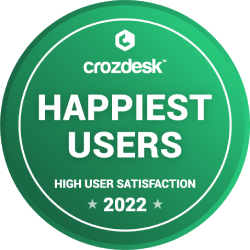
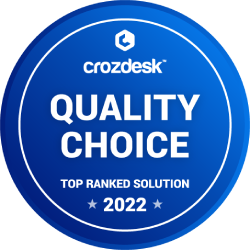

What is Manatal?
Manatal is a cloud-based recruitment software that offers a range of features to streamline the hiring process. It provides tools for job postings, candidate sourcing, applicant tracking, and interview scheduling. Designed to help businesses find the best talent and reduce the time-to-hire, Manatal integrates with popular job boards and social media platforms, making it easier to reach a wider pool of candidates. Its user-friendly interface and mobile app ensure that hiring managers can manage their recruitment activities on the go, enhancing overall efficiency.
Why Look for Manatal Alternatives?
While Manatal is a popular recruitment software, some businesses may find that it does not meet their specific needs. Here are some reasons why you might consider looking for Manatal alternatives:
-
Limited Customization Options: Manatal may not offer the level of customization required to tailor the recruitment process to your specific business needs.
-
Lack of Advanced Features: For companies looking for more sophisticated talent acquisition and management tools, Manatal might fall short.
-
Integration Challenges: Limited integration with other HR systems can hinder seamless workflow and data management.
-
High Cost for Small Businesses or Startups: The pricing model may be prohibitive for smaller companies or startups with limited budgets.
Exploring other recruitment software options can help you find a solution that better aligns with your business requirements and enhances your overall talent acquisition strategy.
100Hires
100Hires is a very popular ATS among small and mid-sized companies, it holds numerous G2 badges, including ‘Leader’ in Recruitment Marketing and Candidate Relationship Management, ‘Most Implementable’ for Small-Business and Mid-Market, and ‘Best Usability’ across multiple categories. Ready to experience 100Hires? Get a demo or start your free trial today to see how 100Hires can optimize your hiring process. For more information on plans and options, check out our pricing page. Key features of 100Hires include Social Recruiting and Interview Scheduling, which enhance user experience and accessibility.
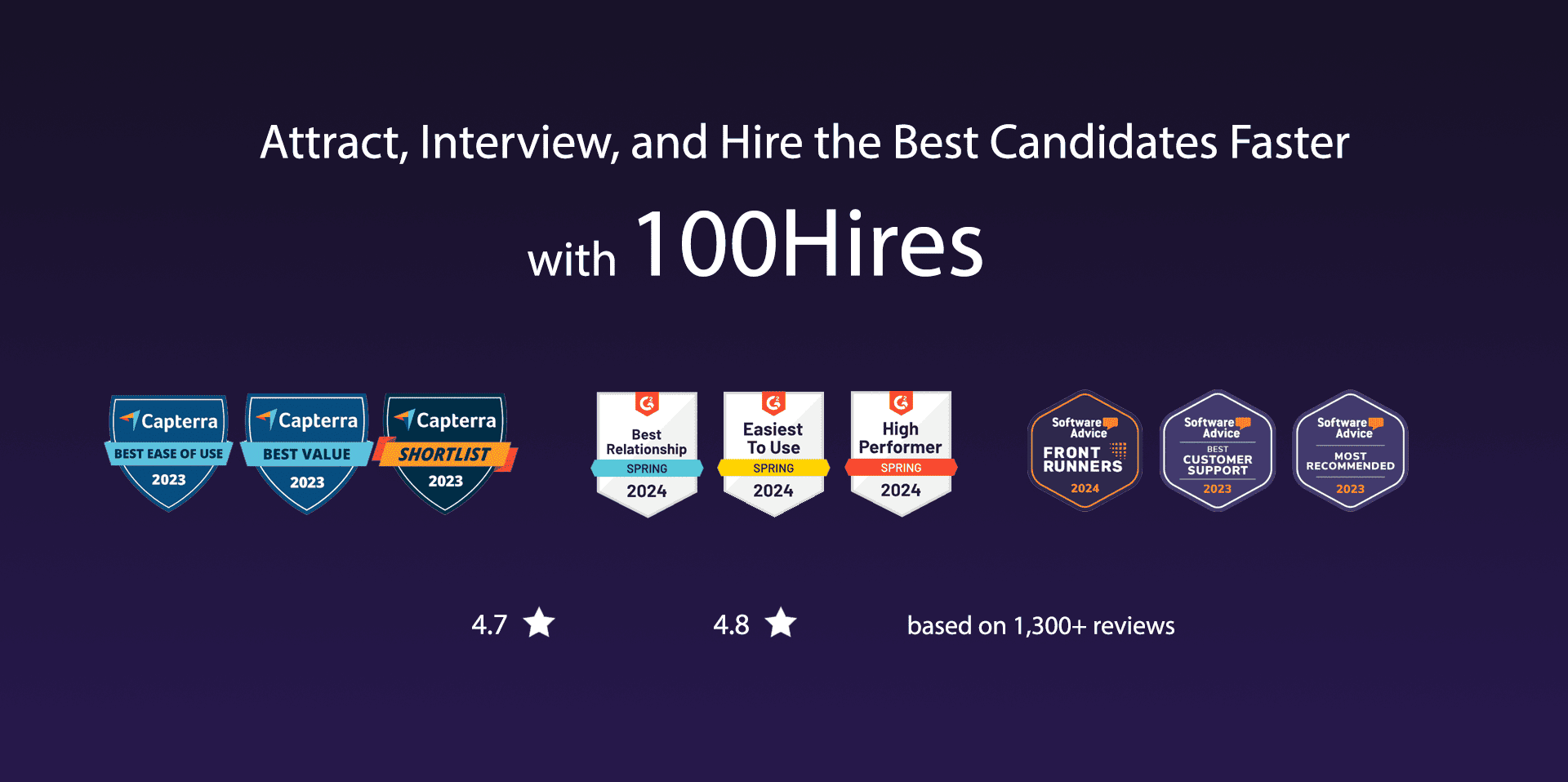
G2 rating: 4.8/5 based on 831 reviews.
Capterra rating: 4.9/5 based on 742 reviews.
1. Enhanced Candidate Sourcing and Outreach:
-
Efficiently import candidates from LinkedIn, GitHub, and other platforms with a browser extension, improving sourcing speed and reach.
-
Access up to 37% more personal emails and phone numbers using a multi-level contact finder, enabling more personalized outreach.
-
Automated, multichannel follow-ups (emails, SMS) and email warmup features boost response rates and help maintain consistent candidate engagement.
2. Centralized Candidate Management:
-
A comprehensive database keeps all candidate information accessible and organized, reducing duplicate communication.
-
Track interaction history and application statuses in one place, ensuring that candidates are effectively moved through the pipeline.
3. Time Savings with AI-Driven Tools:
-
AI-powered tools generate job descriptions, rank candidates, and screen resumes, streamlining administrative tasks so recruiters can focus on high-value activities.
-
Automated candidate matching helps prioritize the best candidates, saving time on manual screening.
4. Automation to Streamline Workflows:
-
Integrate Google or Outlook calendars for simplified scheduling across time zones, eliminating the hassle of manual interview coordination.
-
Automate reminders, follow-ups, and candidate updates to maintain clear communication and optimize the hiring timeline.
100Hires Pricing:
100Hires offers three pricing tiers: Start at $75/month (billed annually) for companies with minimal hiring needs, supporting up to 3 jobs and 1 user. The Advanced plan, at $199/month, includes unlimited jobs, candidates, and users, plus features like automated emails and a custom domain. The Pro plan, at $399/month, adds advanced sourcing tools, contact enrichment, and onboarding support, ideal for sourcing passive candidates.
Loxo, founded in 2012, is an applicant tracking system tailored for executive search firms.
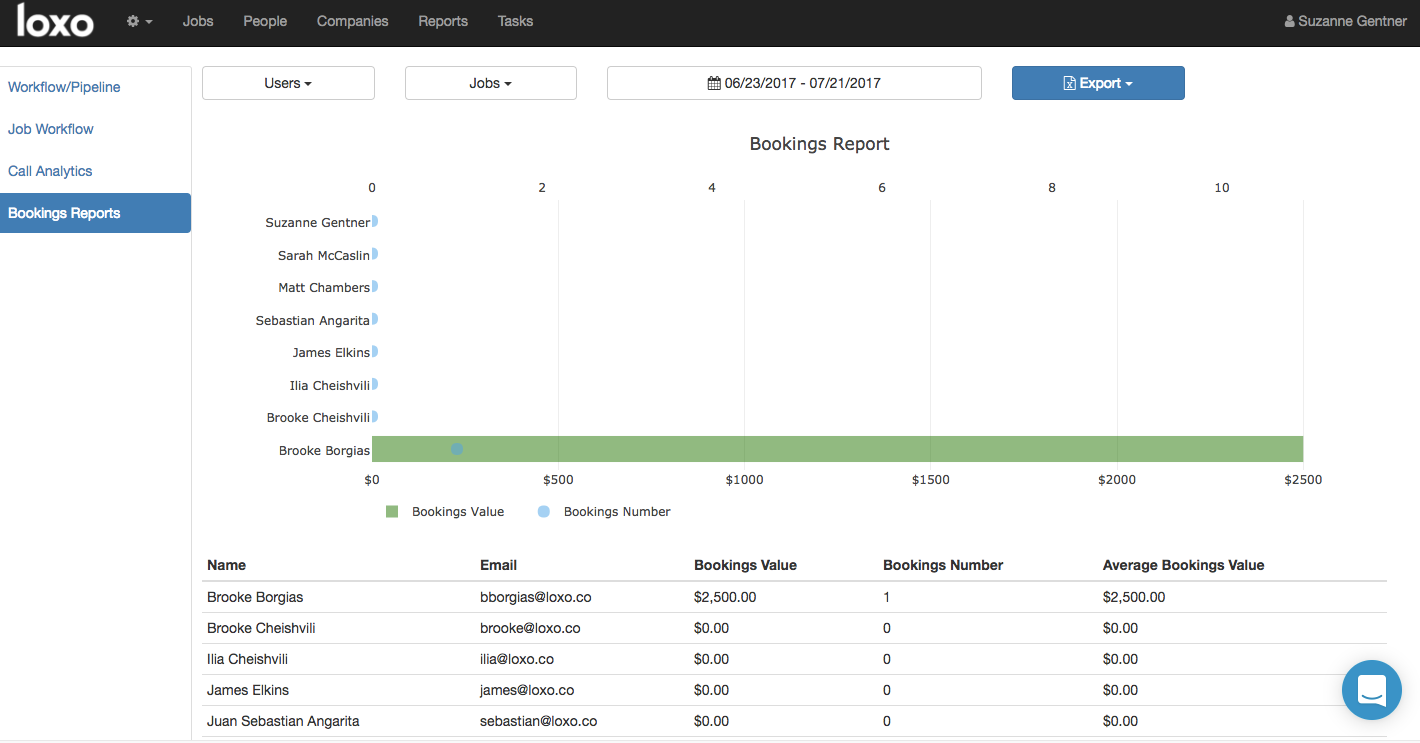
G2 rating: 4.7/5 based on 106 reviews.
Capterra rating: 4.6/5 based on 122 reviews.
Loxo’s typical customers are primarily based in the United States (55.34%), with smaller shares in Canada (18.2%), the United Kingdom (9.35%), Australia (4.85%), and the Philippines (3.09%). Key industries include Staffing and Recruiting (51%), Human Resources (14%), Information Technology and Services (7%), Management Consulting (3%), and Accounting (3%).
According to G2, 30% of customers have fewer than 50 employees, with smaller shares across other size categories. Capterra reviews show 60.8% of customers with 1-10 employees, with smaller shares across other size categories.
Loxo Pricing:
Loxo offers four plans:
Free: $0, includes ATS, CRM, unlimited seats, jobs, Chrome extension, and client portal.
Starter: $119 or $169 per user/month, adds 500 results per Source query, email/calendar sync, sales CRM, and reporting.
Professional: Custom pricing, includes AI features, workflow automation, 250 Loxo Connect credits, specialty datasets, and priority support.
Enterprise: Custom pricing, includes internal mobility sourcing, HCM/ATS integration, SOC 2 Type II reporting, audit logs, and private database instance.
Annual billing provides pricing for new customers.
Loxo Pros:
- Ease of Use and Intuitive Design (mentioned 9 times): Loxo’s interface is praised for its simplicity, making it easy for both new and experienced users to navigate, and intuitive design that resembles modern tools like LinkedIn.
- All-in-One Solution for ATS, CRM, and Sourcing (mentioned 8 times): Users value that Loxo combines ATS, CRM, and sourcing features in a single platform, allowing recruitment and business development teams to work within one system efficiently.
- Exceptional Customer Support (mentioned 7 times): Loxo’s customer support team is highlighted as responsive, accessible, and helpful, ensuring smooth onboarding and continued assistance.
Loxo Cons:
- Inadequate Reporting Features (mentioned 7 times): Users note that reporting capabilities are limited and often require exporting data to create usable reports, with several metrics not tracked that would be helpful.
- Higher Cost Compared to Competitors (mentioned 5 times): The pricing is seen as high for some small businesses and startups, especially given limited flexibility with annual contracts, though users often find value in the features.
- Data Accuracy and Outdated Sourcing Information (mentioned 5 times): Loxo Source’s data is occasionally outdated or includes inaccurate contact information, resulting in additional time spent verifying candidates.
- Mobile App Limitations (mentioned 4 times): The mobile version of Loxo is basic and lacks many features available on the desktop version, making it less practical for recruiters on the go.
- CRM and Business Development Limitations (mentioned 3 times): The CRM functions, especially for business development tracking, are seen as limited compared to the more robust ATS capabilities.
- Bulk Email and Workflow Issues (mentioned 3 times): Users report challenges with bulk email organization, as candidate status doesn’t update automatically upon reply, leading to disorganization.
- Limited Customization in Certain Areas (mentioned 2 times): Users desire more options for customization in email templates, job listings, and co-branding features specific to their recruiting needs.
- Frequent UI Updates Affecting Workflow (mentioned 2 times): Regular updates to the user interface can disrupt established workflows, requiring users to adapt frequently to new changes.
- Limited Integrations with External Tools (mentioned 2 times): Some users express frustration with limited integration options, especially with third-party VOIP systems and platforms like ZoomInfo.
- Initial Setup Complexity (mentioned 2 times): A few users find the initial setup and training sessions challenging, with requests for more hands-on or personalized training.
Avionte for Staffing Agencies
Avionté, founded in 2005, is an applicant tracking system that acquired AkkenCloud, simplevms, WorkN, COMPAS Technology, and Applied Systems Technology. Avionte is tailored for staffing agencies, offering features that enhance job postings, applicant tracking, and the entire recruitment process.
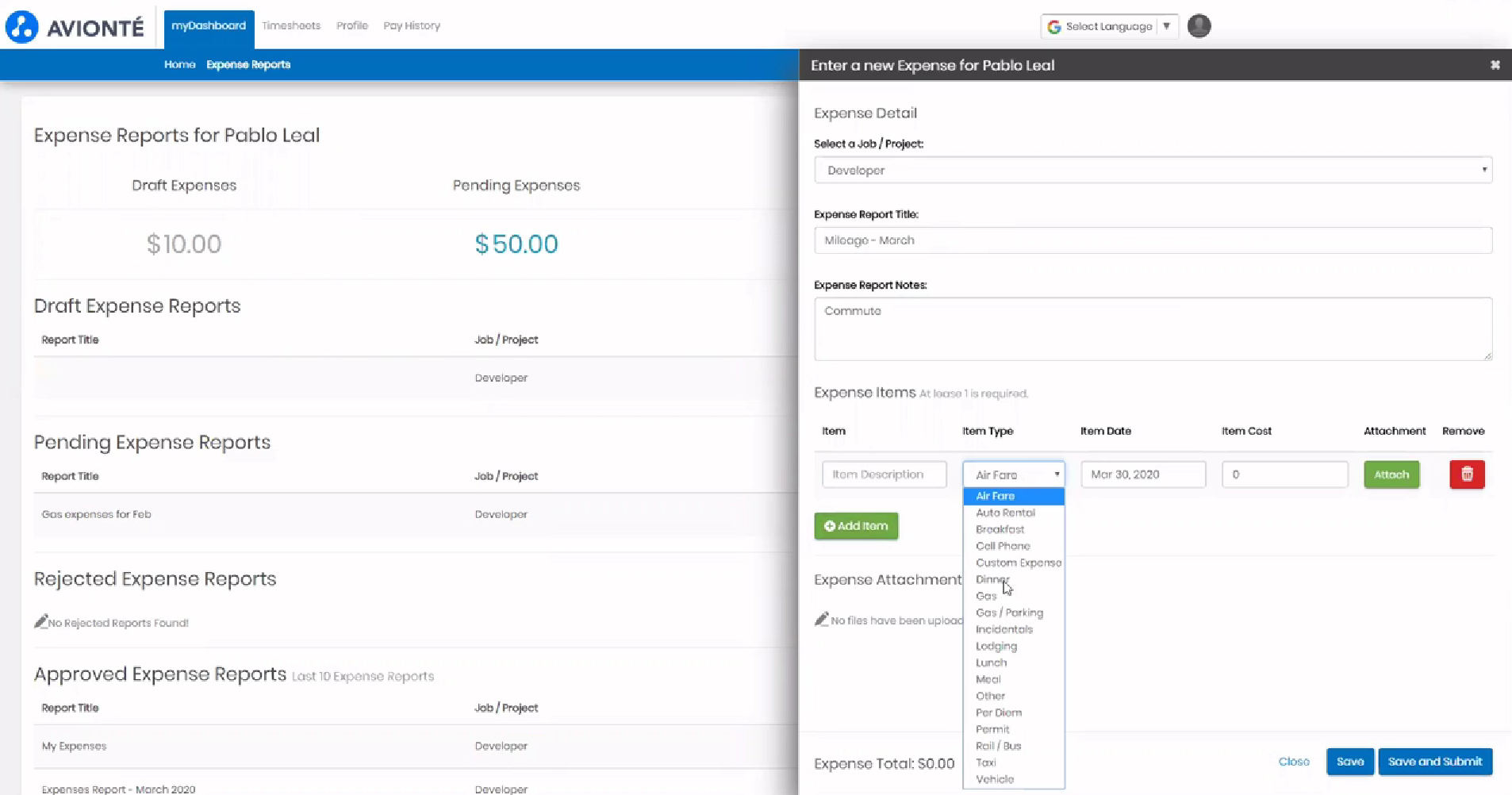
G2 rating: 4.3/5 based on 380 reviews.
Capterra rating: 3.9/5 based on 167 reviews.
Avionte’s typical customers are primarily based in the United States (95.55%), with smaller shares in Canada (3.56%), India (0.46%), and the United Kingdom (0.43%). Key industries include Staffing and Recruiting (75%), Human Resources (4%), Construction (3%), Mechanical or Industrial Engineering (2%), and Hospital & Health Care (1%).
According to G2, 52% of customers have 51-1000 employees, 40% have fewer than 50 employees, and 10% have more than 1000. Capterra reviews show 29.6% of customers with 51-200 employees, and smaller shares across other size categories.
Avionte Pricing:
Avionté's pricing starts at $750 per user per month, with a minimum requirement of five users. This means the base monthly cost begins at $3,750. Additionally, there is a one-time setup fee. Pricing can vary based on selected features and customization levels. Payment terms are flexible, offering annual or quarterly billing options.
Avionte Pros:
- User-Friendly and Easy to Use (17 mentions): Users frequently praised Avionte for its user-friendly interface and ease of use, making daily tasks more straightforward and less time-consuming.
- Seamless Integration and Workflow (12 mentions): Many users highlighted the seamless integration between different parts of the software, such as from the front office to the back office, and with external job boards and other platforms.
- Customization and Flexibility (11 mentions): Users appreciated the ability to customize various features according to specific business needs and workflows, enhancing the software’s flexibility.
Avionte Cons:
- Slow Performance and Loading Issues (9 mentions): Users frequently reported slow loading times, system lags, and occasional downtimes, which affect their productivity.
- Glitches and Bugs (8 mentions): Several users mentioned experiencing bugs and glitches within the software, particularly after updates, which sometimes led to temporary loss of access to profiles and important functionalities.
- Complex and Limited Reporting Capabilities (7 mentions): Users expressed difficulties with the reporting functions, finding them complex and lacking in flexibility to combine or customize information as needed.
- Customer Support Issues (6 mentions): Responses from customer support were often seen as slow or unhelpful, with some tickets remaining unresolved for extended periods.
- Inadequate Integration with Other Tools (6 mentions): Users felt that integrations with third-party applications were lacking, not user-friendly, or took too long to set up.
- Frequent Requirement to Clear Cache (4 mentions): The need to frequently clear browser cache to ensure functionality post-updates was a common inconvenience mentioned by users.
- Interface and Usability Issues (4 mentions): Users found certain aspects of the interface, such as the layout of information or navigation between features, to be cumbersome or inefficient.
- Limited Customization and Flexibility (3 mentions): Some users were frustrated by the limited ability to customize the software to better fit their specific workflow needs.
- Issues with Job Boards and Candidate Sourcing (3 mentions): The embedded job boards were criticized for being outdated and not optimized, affecting the quality and quantity of applicant flow.
- Data Duplication and Errors (2 mentions): Issues with data duplication and errors in data handling were noted, affecting the accuracy and reliability of the software.
Bullhorn Applicant Tracking System
Bullhorn, founded in 1999, is an applicant tracking system that raised $32.1 million and acquired companies such as Kona Search, Textkernel, Mployee, SourceBreaker, Able, cube19, Sirenum, Herefish, Erecruit, Invenias, JobScience, Talent Rover, Peoplenet, Connexys, The Code Works, Easy Software, Sendouts, and MaxHire Solutions. It was acquired by Insight Partners after being purchased by Vista. Bullhorn operates as software as a service, streamlining HR management and recruitment processes with cloud-based accessibility.
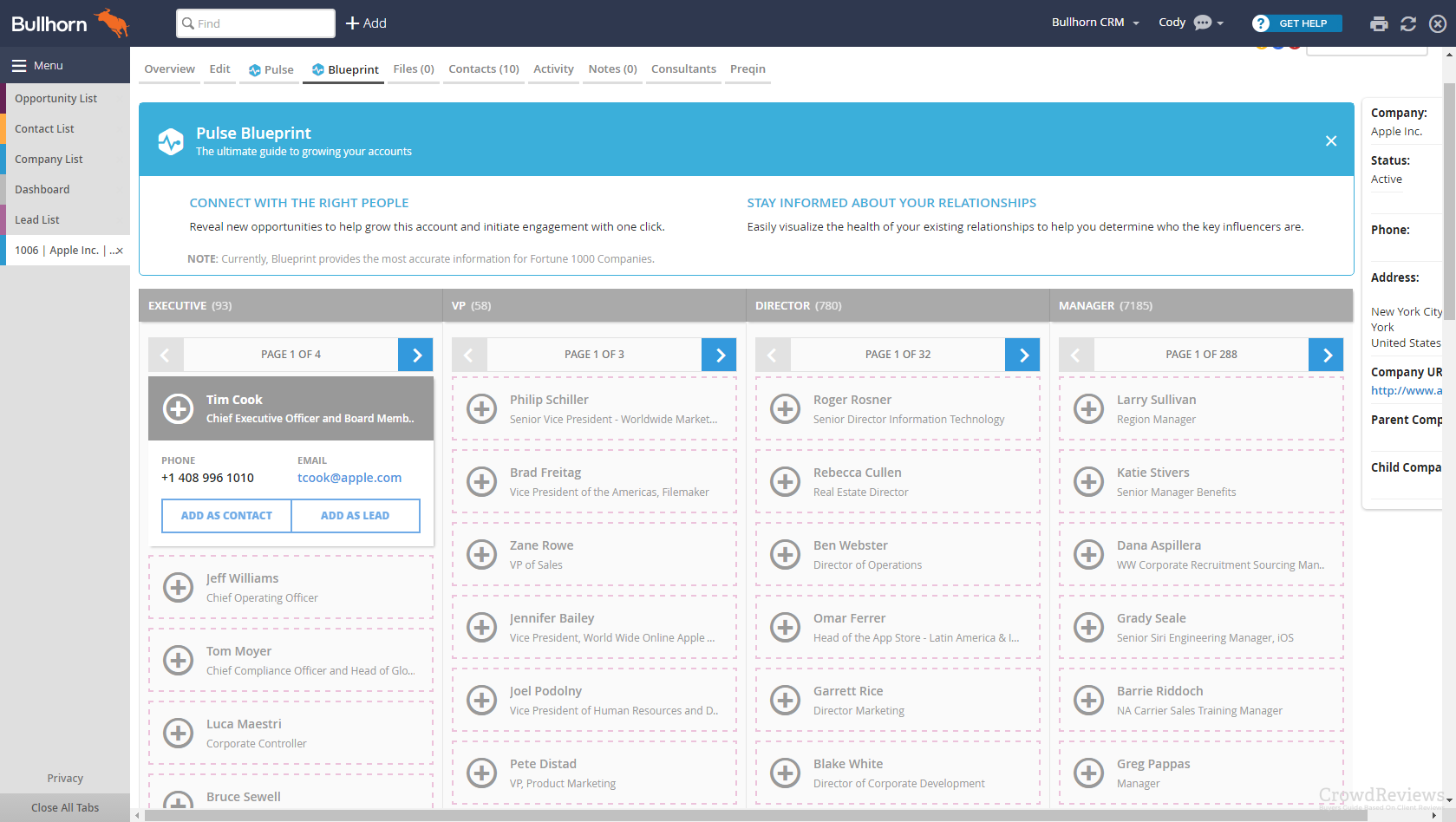
G2 rating: 4/5 based on 560 reviews.
Capterra rating: 4.1/5 based on 1070 reviews.
Bullhorn’s typical customers are primarily based in the United States (51.81%), with smaller shares in the United Kingdom (14.58%), Australia (5.47%), Canada (5.16%), and the Netherlands (4.7%). Key industries include Staffing and Recruiting (38%), Human Resources (13%), Information Technology and Services (9%), Computer Software (5%), and Construction (4%).
According to G2, 44% of customers have 51-1000 employees, 38% have fewer than 50 employees, and 18% have more than 1000. Capterra reviews show 20.8% of customers with 51-200 employees, and smaller shares across other size categories.
Bullhorn Pricing:
Bullhorn's pricing varies based on the selected plan and company size:
Starter Plan: Begins at $99 per user per month.
Corporate Plan: Starts at $199 per user per month.
Enterprise Plan: Custom pricing tailored to the business's size and needs.
Some clients have reported quotes of $250 per user per month for the ATS, CRM, and backend modules, with an implementation fee of $25,000. Another source indicates a starting price of $120 per user per month for mid-sized to enterprise businesses, without a free trial. It's important to note that these figures can vary based on specific requirements and negotiations.
Bullhorn Pros:
- Ease of Use and User-Friendly Interface (27 mentions) - Frequently highlighted for its simple, intuitive interface and ease of navigation, making it accessible for all users.
- Customizability and Integration Capabilities (25 mentions) - Users appreciate the ability to customize the interface and workflows, and the ease of integration with other software and tools.
- Comprehensive Candidate and Recruitment Management (20 mentions) - Users value the centralized management of candidates, job postings, and recruitment processes, including tracking and analytics capabilities.
Bullhorn Cons:
- Complexity and Steep Learning Curve (18 mentions) - Users find Bullhorn's wide range of features and high customizability contribute to its complexity, requiring significant training and adaptation.
- Technical Glitches and System Crashes (17 mentions) - Frequent technical issues, system slowdowns, and occasional crashes that disrupt user workflow are common complaints.
- Poor Customer Support (15 mentions) - Users report dissatisfaction with the level of customer support, describing it as slow, unresponsive, or generally lacking in effectiveness.
- Issues with Integration and Updating Features (13 mentions) - Challenges with integrating new features, outdated elements, and difficulty in updating or customizing features are noted.
- User Interface and Usability Issues (10 mentions) - Complaints about the user interface being outdated, clunky, or not user-friendly, impacting the overall user experience.
- Problems with Specific Features (10 mentions) - Specific functionalities, like search capabilities, email integration, and data synchronization, are criticized for not performing well or being cumbersome.
- Inefficient Reporting and Analytics Tools (8 mentions) - While some users appreciate the robust reporting, others find the tools clunky, hard to customize, or lacking in depth.
- Frequent Requirement to Log In/Session Expirations (7 mentions) - Users are frustrated by frequent logouts and the need to log in multiple times, which disrupts workflow.
- High Cost (5 mentions) - The cost of using Bullhorn ATS is considered high by some users, making it less attractive compared to other options.
- Limited Automation and Messaging Issues (5 mentions) - Limitations in automation capabilities and issues with messaging functions are seen as drawbacks.
Ceipal, founded in 2015, is an applicant tracking system based in India that raised $29.8 million and acquired Zoniac.
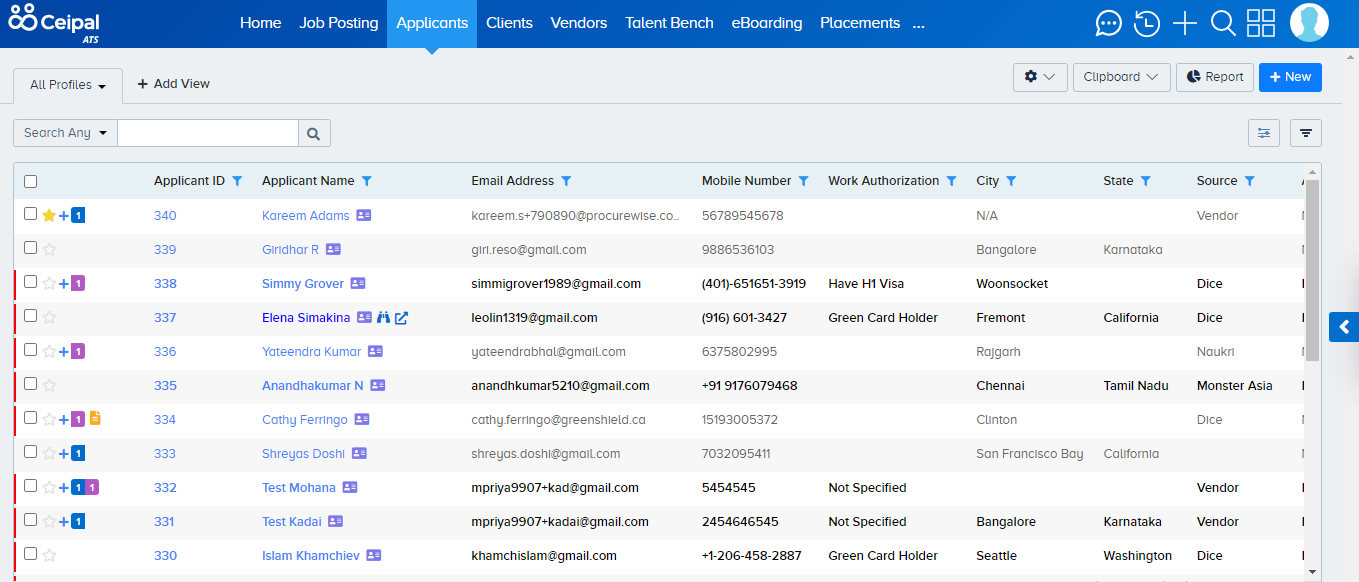
G2 rating: 4.6/5 based on 1231 reviews.
Capterra rating: 4.6/5 based on 1237 reviews.
Ceipal’s typical customers are primarily based in India (66.37%), with smaller shares in the United States (27.32%), Canada (1.62%), the United Kingdom (0.75%), and South Africa (0.57%). Key industries include Staffing and Recruiting (60%), Information Technology and Services (17%), Human Resources (9%), Computer Software (5%), and Outsourcing/Offshoring (2%).
According to G2, 80% of customers have 51-1000 employees, 12% have fewer than 50 employees, and 8% have more than 1000. Capterra reviews show 35.2% of customers with 201-500 employees, with smaller shares across other size categories.
Ceipal simplifies the posting and management of job ads, streamlining the creation, publication, and management of these advertisements to improve efficiency in hiring.
Ceipal Pricing:
Ceipal ATS pricing starts at $24 per user per month, with a free trial available. The platform follows a per-user, monthly subscription model, and additional setup fees may apply. Ceipal also offers flexible pricing options, including a free plan for limited use.
Ceipal Pros:
- Simplification of Complex Recruitment Processes (22 times): Streamlines and simplifies recruitment tasks with a user-friendly interface and comprehensive features.
- Efficiency in Candidate Sourcing (18 times): Enhances sourcing efficiency by integrating multiple job boards and databases for comprehensive search capabilities.
- Time-Consuming Recruitment Tasks (14 times): Automates and customizes recruitment workflows to save time on repetitive tasks.
Ceipal Cons:
- Limited Search and Parsing Accuracy (mentioned 9 times): Users reported issues with Boolean search accuracy, parsing function errors, and the ATS sometimes failing to accurately match job titles or skills, leading to irrelevant profiles.
- Performance and Speed Issues (mentioned 8 times): Complaints about the system being slow, lagging, or taking a long time to load profiles and during resume parsing. Some users also experienced automatic logouts when the page was inactive.
- Contact Information and Resume Accessibility (mentioned 7 times): Difficulties in finding complete contact details on resumes, accessing certain resumes, and encountering profiles without resumes or contact information.
- User Interface and Experience (mentioned 6 times): Feedback on the user interface being complicated or clunky, with suggestions for improvement in navigation and the overall user experience.
- Integration and Feature Limitations (mentioned 5 times): Challenges with integrating external job boards fully, limitations in mail merge capacity, and a desire for more advanced features or customization options.
- Data Quality and Management (mentioned 4 times): Issues with duplicate profiles, outdated candidate information, and difficulties in managing or migrating profiles effectively.
- Customer Support and Training (mentioned 3 times): Mixed experiences with customer support, including challenges with onboarding and a need for more responsive or localized support.
- Reporting and Analytics (mentioned 2 times): Limited reporting capabilities, inconsistencies in report data, and a lack of detailed analytics or customization options for reports.
- Technical Glitches and Bugs (mentioned 2 times): Occasional system glitches, bugs, and integration failures that impact user experience and efficiency.
- Cost and Value (mentioned 1 time): While not a widespread concern, there was a mention of the cost being cheaper than alternatives, suggesting that some users are looking for a balance between price and features.
Crelate, founded in 2012, is an applicant tracking system that raised $11.5 million.
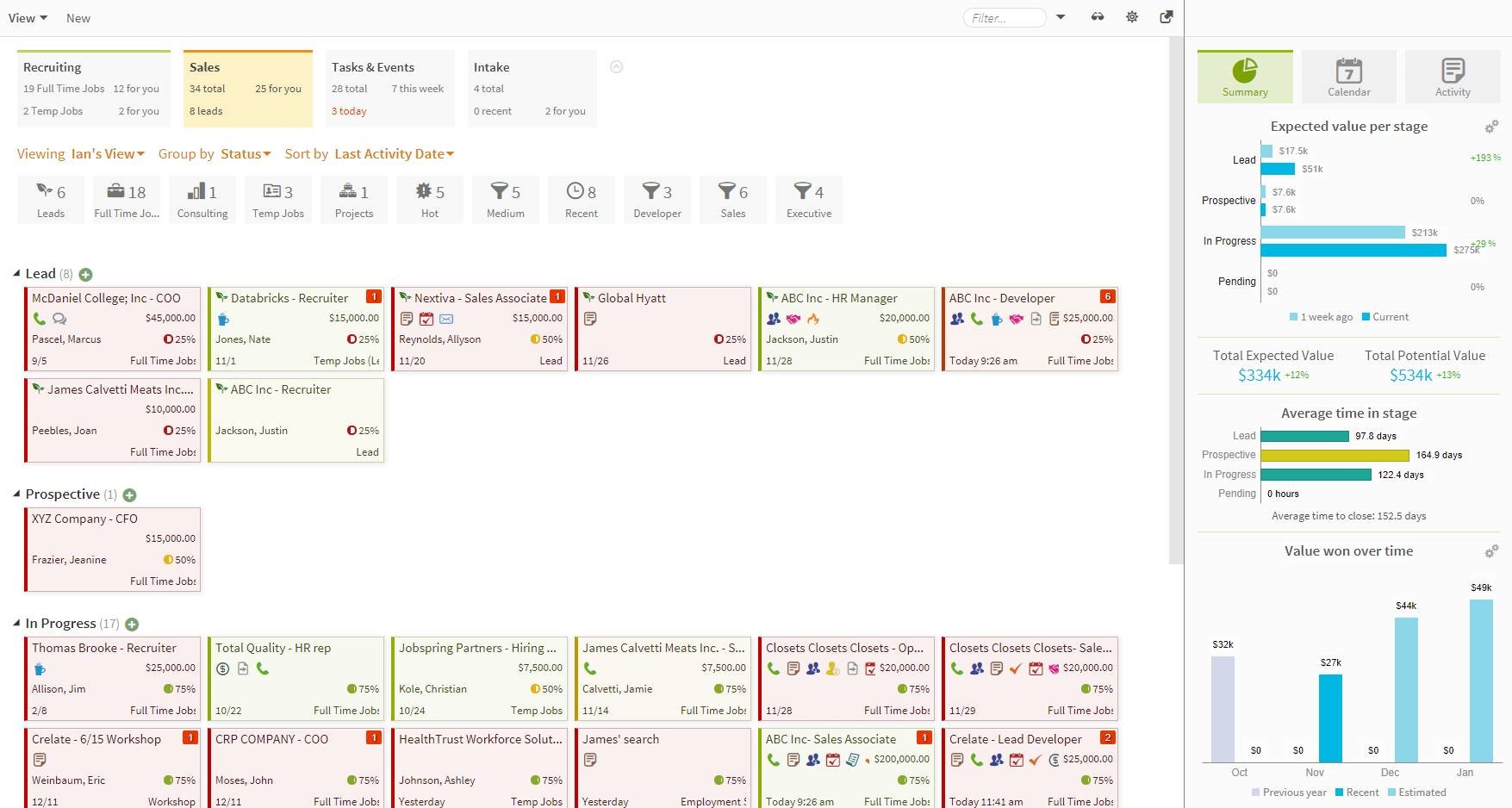
G2 rating: 4.4/5 based on 208 reviews.
Capterra rating: 4.5/5 based on 425 reviews.
Crelate’s typical customers are primarily based in the United States (74.4%), with smaller shares in Canada (11.54%), the Philippines (4.95%), Mexico (2.89%), and Nigeria (2.07%). Key industries include Staffing and Recruiting (45%), Human Resources (19%), Information Technology and Services (4%), Hospital & Health Care (4%), and Accounting (3%).
According to G2, 72% of customers have fewer than 50 employees, and 28% have 51-1000 employees. Capterra reviews show 45.6% of customers with 1-10 employees, with smaller shares across other size categories. Crelate allows companies to post jobs efficiently, enhancing visibility and attracting top talent.
Crelate Pricing:
For recruiting and consulting agencies, the Business plan is $99 per user/month (billed annually, for multi-seat licensing only) and includes CRM with analytics, resume parsing, client portals, a branded job portal, and advanced reports. The Business Plus plan is $144 per user/month (also billed annually) and adds premium client portals, increased storage, automation, and RingCentral integration. A Custom plan is available with tailored solutions, with pricing provided upon consultation.
Crelate Hire and Crelate Deliver, each at $80 per user (per active worker), are also exclusively for recruiting and consulting agencies. Crelate Hire streamlines hiring processes and compliance, while Crelate Deliver manages assignments, timekeeping, and payroll integration.
Crelate Pros:
- User-Friendly and Intuitive Interface (mentioned 42 times): Users appreciate the ease of use, straightforward navigation, and intuitive design of Crelate, making it accessible for both new and experienced users.
- Ease of Integration and Customization (mentioned 28 times): Crelate's ability to integrate with various platforms (e.g., LinkedIn, job boards) and its customizable features are highly valued for adapting to different workflows and needs.
- Effective Data Capture and Management (mentioned 24 times): The software's capability to efficiently capture and manage data from various sources, including emails and LinkedIn, is highlighted as a key benefit.
Crelate Cons:
- Customer Support and Response Times (mentioned 18 times): Users express concerns over the responsiveness and effectiveness of customer support, including slow response times and reliance on automated systems.
- Integration and Compatibility Issues (mentioned 16 times): Difficulties integrating with other systems, such as email platforms and LinkedIn, and compatibility issues with mobile devices are highlighted.
- User Interface and Usability (mentioned 14 times): Some users find the user interface clunky or not intuitive, with specific references to difficulties in navigating the system and managing candidate information.
- Reporting and Analytics Limitations (mentioned 12 times): Users desire more robust and customizable reporting and analytics features to better track performance and outcomes.
- Glitches and Technical Issues (mentioned 10 times): Occasional software glitches and technical issues, including problems with job postings and email templates, are mentioned as areas for improvement.
- Learning Curve and Complexity (mentioned 8 times): The complexity of the system and a steep learning curve for new users are cited as challenges, with suggestions for more comprehensive training resources.
- Cost and Pricing Concerns (mentioned 6 times): Some users find the software more expensive than alternatives and express concerns about the cost of adding additional features or users.
- Limited Customization Options (mentioned 4 times): Users would like more flexibility in customizing the software to fit their specific workflows and preferences.
- Data Management and Duplication Issues (mentioned 4 times): Challenges with managing duplicate records and desires for better data parsing and integration capabilities are mentioned.
- Social Media and External Job Posting Support (mentioned 2 times): Users seek improved support for posting positions on social media and external job boards, including better HTML support and branding options.
JobAdder, founded in 2007, is an applicant tracking system based in Australia that raised $38 million.
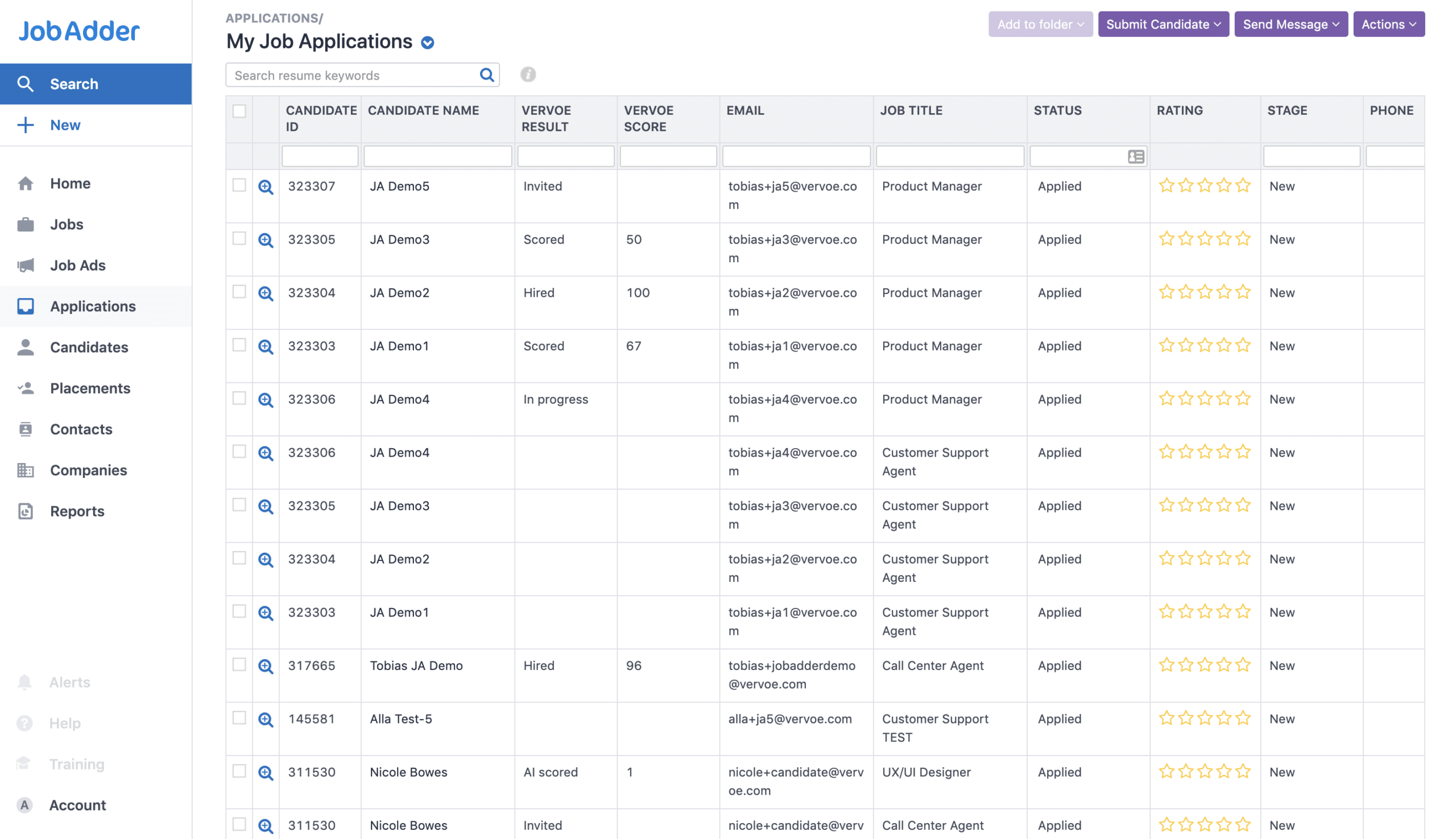
G2 rating: 4.4/5 based on 144 reviews.
Capterra rating: 4.5/5 based on 156 reviews.
JobAdder’s typical customers are primarily based in Australia (50.68%), with smaller shares in the United Kingdom (14.44%), the United States (8.86%), the Philippines (5.74%), and New Zealand (4.58%). Key industries include Staffing and Recruiting (38%), Human Resources (17%), Accounting (8%), Computer Software (7%), and Information Technology and Services (3%).
According to G2, 80% of customers have fewer than 50 employees, while 18% have 51-1000 employees, and 2% have more than 1000. Capterra reviews show 29.6% of customers with 1-10 employees and 20% with 11-50 employees, with smaller shares across other size categories.
JobAdder helps in identifying relevant candidates through features like automated resume screening and tailored job descriptions.
JobAdder Pricing:
JobAdder offers flexible pricing options designed for companies of various sizes, starting at approximately $160 per user per month, typically billed annually. An alternative plan is available at $99 per user per month with no contract requirement. JobAdder also supports scalability with over 10 add-ons, 100+ integration partners, and access to 200+ job boards.
JobAdder Pros:
- Ease of Use and User-Friendly Interface: Mentioned 27 times. Users appreciate the clean, intuitive interface and find the platform easy to navigate, making it accessible for new users and enhancing the overall user experience.
- Excellent Customer Support: Mentioned 23 times. The prompt, efficient, and friendly customer support, including follow-ups to ensure issues are resolved, stands out as a significant advantage of using JobAdder.
- Integration and Customization Capabilities: Mentioned 15 times. The ability to integrate with various systems and platforms seamlessly, along with customization options to tailor the software to specific business needs, is highly valued.
JobAdder Cons:
- Feature Limitations and Enhancement Requests (mentioned 14 times): There's a significant call for additional features and enhancements, including better customization options, more robust reporting tools, and specific functionalities like automated emails and improved candidate search capabilities.
- Support and Customer Service Feedback (mentioned 7 times): While some users praise the support team's responsiveness, others experience difficulties in reaching support or desire more personalized assistance, indicating a mixed experience with customer service.
- Integration Challenges (mentioned 6 times): Feedback highlights difficulties with integrating JobAdder with other systems and platforms, such as job boards and accounting software, which affects workflow efficiency.
- Administrative and Customization Limitations (mentioned 5 times): There's a notable demand for greater administrative control and customization abilities, allowing users to tailor the platform more closely to their specific processes and needs.
- Usability and Interface Concerns (mentioned 5 times): Users report challenges with the platform's usability, including a need for numerous clicks to perform tasks, a clunky interface, and occasional slowness, impacting the overall user experience.
- Adaptation to Specific Needs (mentioned 4 times): Users from various sectors, such as in-house recruitment and executive search, suggest that JobAdder could better adapt its features and functionalities to meet the unique requirements of different recruitment contexts.
- Reporting and Analytics Deficiencies (mentioned 4 times): The platform's reporting and analytics capabilities are seen as lacking, with users desiring more comprehensive and flexible reporting options to better track performance and outcomes.
- Concerns with Product Development and Updates (mentioned 3 times): Users express dissatisfaction with the direction of product development, noting that recent updates have not adequately addressed the core needs of recruiters, and the introduction of new features sometimes overlooks basic usability.
- Technical Issues and Glitches (mentioned 3 times): Users encounter technical glitches and errors, such as issues with ad postings and email functionalities, which hinder operational efficiency and user satisfaction.
- Performance and Relevance Issues (mentioned 2 times): Concerns are raised about the platform's performance, including slow loading times and the relevance of AI search results, which can impact the effectiveness of recruitment efforts.
JobDiva, founded in 2001, is an applicant tracking system based in Lebanon and Pakistan.
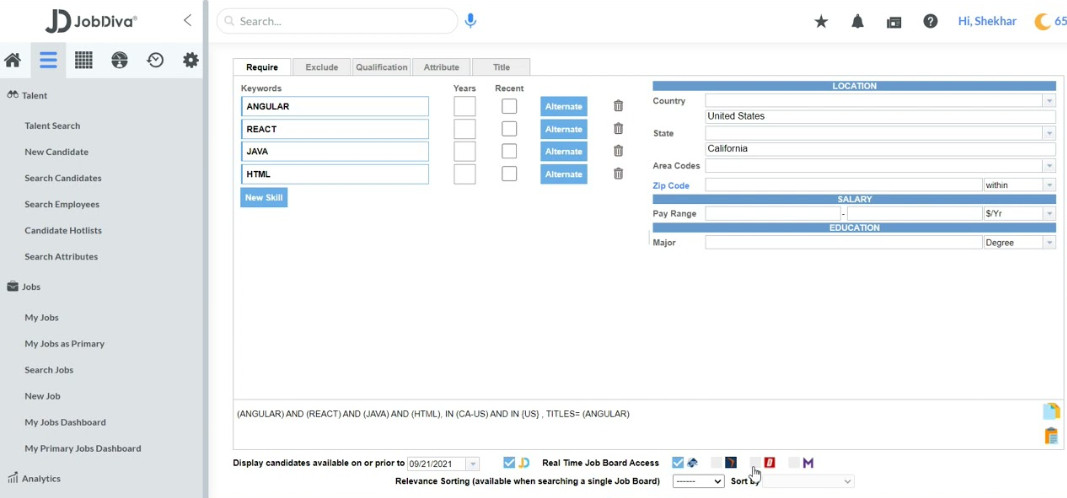
G2 rating: 4.7/5 based on 1158 reviews.
Capterra rating: 4.5/5 based on 1228 reviews.
Jobdiva's typical customers are primarily based in the United States (67.51%), with smaller shares in India (18.75%), Pakistan (4.08%), Canada (3.69%), and Mexico (1.26%). Key industries include Staffing and Recruiting (72%), Information Technology and Services (11%), Human Resources (9%), Management Consulting (2%), and Outsourcing/Offshoring (2%).
According to G2, 60% of customers have more than 1000 employees, and 40% have 51-1000 employees. Capterra reviews show 28.8% of customers with 51-200 employees, 22.4% with 1,001-5,000 employees, and smaller shares across other size categories.
Jobdiva Pricing:
JobDiva’s pricing begins at $100 to $200 per month, with custom pricing options available based on specific business needs.
Jobdiva Pros:
- User-Friendly Interface and Simplicity (mentioned 31 times): JobDiva is lauded for its intuitive and straightforward interface, ensuring ease of use for users across all levels of technical proficiency, significantly enhancing the user experience.
- Extensive Candidate Database and Talent Management (mentioned 9 times): The platform's vast database and effective talent management capabilities are highly valued for enabling efficient recruitment and streamlined talent acquisition processes.
- Seamless Integration with Job Boards and Tools (mentioned 8 times): JobDiva's ability to integrate effortlessly with various job boards and recruitment tools is appreciated for simplifying workflows and enhancing productivity.
Jobdiva Cons:
- Occasional Performance Issues (e.g., Slowness, Crashes) (mentioned 15 times): Users report occasional performance issues, including slowness, crashes, and lag, which can hinder productivity and user experience.
- Complexity and Learning Curve (mentioned 8 times): Some users find JobDiva's extensive range of features overwhelming, noting a significant learning curve and complexity in implementation.
- Limited Customization Options (mentioned 7 times): Users desire more customization options to tailor the system to their specific workflows or unique business processes.
- Issues with Search Functionality (mentioned 6 times): There are reports of challenges with the search functionality, including slow search results and inaccurate candidate matches.
- Integration and Compatibility Issues (mentioned 5 times): Users encounter difficulties with integration and compatibility with other systems or job boards, affecting workflow efficiency.
- Limited Mobile App Functionality (mentioned 4 times): The mobile app is noted to have limitations, restricting users' ability to perform certain tasks on the go.
- User Interface Could Be Improved (mentioned 4 times): While not a major concern, some users believe the user interface could be more modern or user-friendly.
- Customer Support Variability (mentioned 3 times): Mixed experiences with customer support, including variability in response times and effectiveness in resolving issues.
- Limited Reporting and Analytics Features (mentioned 3 times): Users seek enhancements in reporting and analytics for more detailed and customizable insights.
- Issues with Email Functionality and Notifications (mentioned 2 times): Some users experience problems with email functionality, including delays in submission emails and issues with mail merge.
Recruiterflow, founded in 2016, is an applicant tracking system based in India.
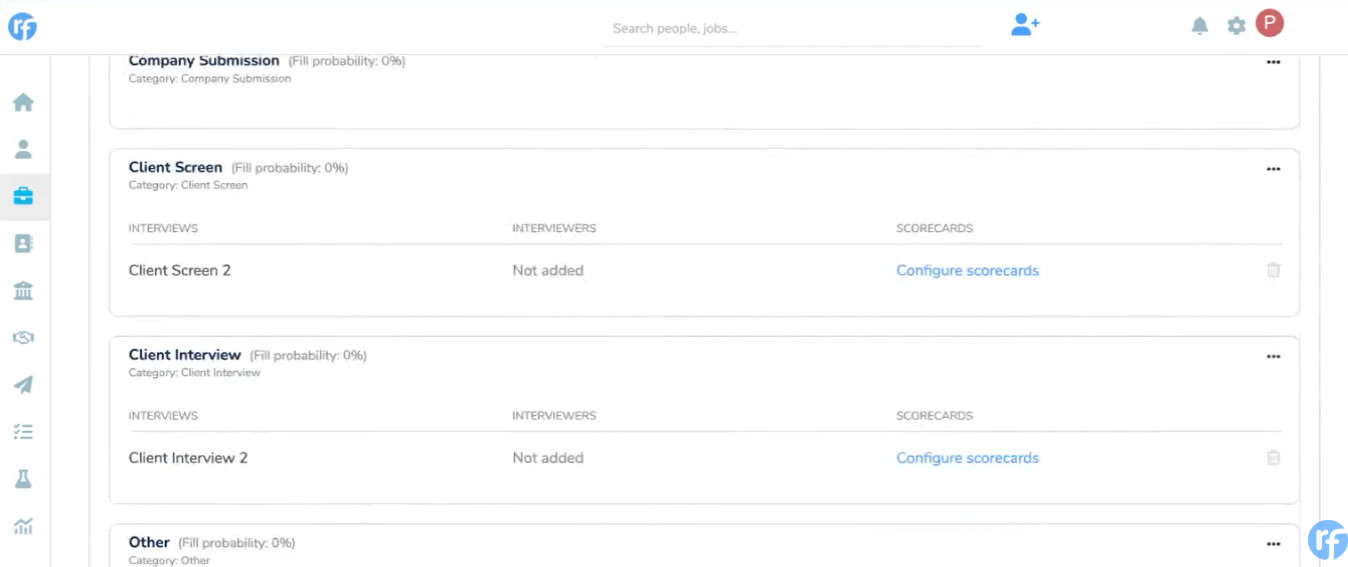
G2 rating: 4.6/5 based on 104 reviews.
Capterra rating: 4.7/5 based on 318 reviews.
Recruiterflow's typical customers are primarily based in the United States (23.61%), with smaller shares in India (12.48%), Mexico (8.62%), the United Kingdom (6.85%), and Canada (4.82%). Key industries include Staffing and Recruiting (43%), Human Resources (31%), Information Technology and Services (6%), Education Management (2%), and Marketing and Advertising (2%).
According to G2, 52.2% of customers have 51-1000 employees, 43.5% have fewer than 50 employees, and 4.3% have more than 1000. Capterra reviews show 51.2% of customers with 1-10 employees, and smaller shares across other size categories.
Recruiterflow Pricing:
Base: $99/user/month, ideal for emerging agencies, includes unlimited jobs, unlimited candidates and contacts, a branded careers page, click-to-call and texting, and reporting.
Pro: $109/user/month, designed for agencies scaling their operations, includes all Base features, plus Chrome extension sourcing, access control, custom activities, campaign templates, multi-channel email and SMS campaigns, API access, and RF GPT.
Advanced: $129/user/month, tailored for agencies needing a comprehensive solution, includes all Pro features, plus recruitment and sales automation, bulk import via Chrome extension, auto disqualification, automation templates, AI-powered candidate matching, and custom user teams.
Recruiterflow Pros:
- Ease of Use and Intuitive Interface (mentioned 14 times): Users appreciate the straightforward and user-friendly design of Recruiterflow, highlighting its simplicity and the minimal training required to get started.
- Automation and Workflow Customization (mentioned 12 times): The ability to automate repetitive tasks and customize workflows for different recruitment processes is highly valued, saving time and enhancing efficiency.
- Comprehensive Candidate Tracking and CRM Features (mentioned 10 times): The combination of candidate tracking and CRM capabilities in one platform is seen as a major advantage, enabling users to manage the entire hiring process seamlessly.
Recruiterflow Cons:
- Limited Customization and Integration Options (mentioned 6 times): Users expressed a desire for more customization options to tailor the platform to their specific needs and workflows, as well as for more integrations with other tools and platforms.
- Issues with Mobile App and User Interface (mentioned 5 times): Some users reported that the mobile app could be improved for better usability, and others found the user interface to be confusing or lacking in certain areas.
- Challenges with Email Communications and Campaigns (mentioned 4 times): Difficulties were noted in managing email communications effectively, including issues with syncing, formatting, and the complexity of setting up automated campaigns.
- Difficulty in Managing and Tracking Data (mentioned 4 times): Users mentioned challenges in managing duplicate entries, tracking recruiter activities, and a desire for better reporting and analytics features.
- Glitches and Software Lags (mentioned 3 times): Some users experienced technical glitches and lags within the software, which could disrupt the workflow and require system restarts.
- Learning Curve for New Users (mentioned 2 times): New users may find the platform overwhelming due to its various features, though this is mitigated by available tutorials.
- Lack of a Comprehensive Dashboard (mentioned 2 times): Users would appreciate a dashboard that provides a daily overview of activities, interviews, and progress updates.
- Pricing Concerns (mentioned 2 times): While not a widespread concern, some users mentioned that the pricing could be more competitive, especially for smaller agencies or startups.
- Customer Support and Billing Issues (mentioned 1 time): There was a specific mention of dissatisfaction with customer support and billing practices, including a lack of transparency and responsiveness.
- Desire for More Advanced Features (mentioned 1 time): Some users are looking for more advanced features, such as AI-based functionalities, better job posting and candidate search capabilities, and enhanced email marketing tools.
Vincere, founded in 2012, is an applicant tracking system based in Vietnam that was acquired by The Access Group.
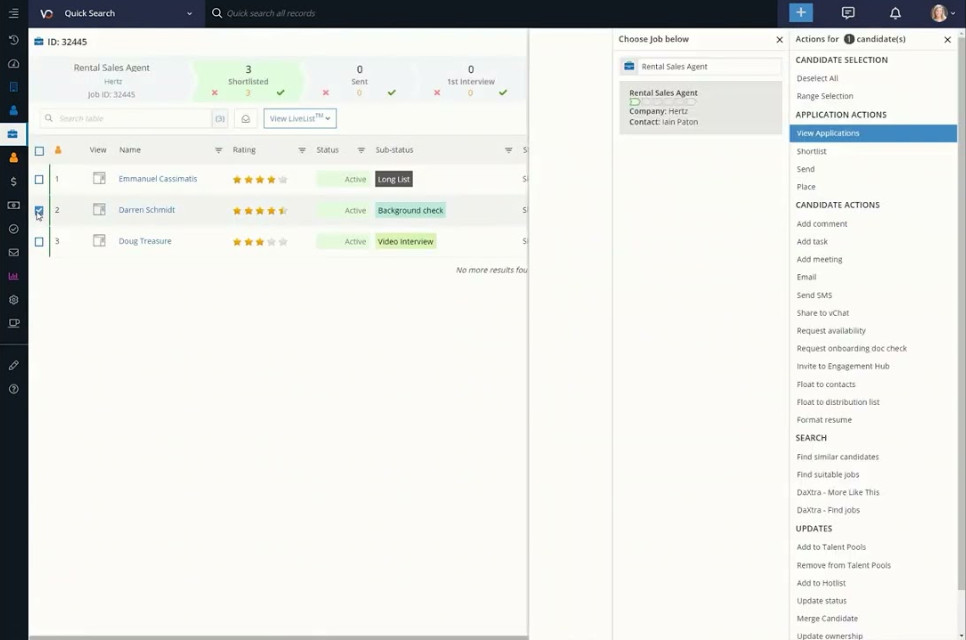
G2 rating: 4.6/5 based on 402 reviews.
Capterra rating: 4.8/5 based on 345 reviews.
Vincere's typical customers are primarily based in the United Kingdom (29.87%), with smaller shares in Germany (13.56%), Australia (11.54%), Singapore (6.15%), and Indonesia (4.91%). Key industries include Staffing and Recruiting (83%), Information Technology and Services (7%), Accounting (2%), Human Resources (2%), and Banking (1%).
Capterra reviews show that 21.6% have 1-10 employees, 12.8% have 11-50 employees, and 9.6% have 51-200 employees, with smaller shares across other categories.
Vincere Pricing:
Vincere offers bespoke pricing for recruitment agencies, with plans starting at £85 per user per month for small agencies, which includes core CRM and ATS features. Mid-sized agencies pay £85-£150 per user monthly, with access to additional modules like TimeTemp for timesheets and basic analytics. Enterprise clients, at £150-£300+ per user, gain advanced features such as video outreach, custom dashboards, priority support, and custom integrations. Large agencies (50+ users) may qualify for volume discounts, with pricing influenced by user count, selected add-ons, and contract length.
Vincere Pros:
- User-Friendly and Intuitive Interface: Mentioned 25 times. Users appreciate Vincere's easy-to-navigate and intuitive platform, which facilitates a smooth workflow and quick adaptation for new users.
- Excellent Customer Support and Responsive Service Team: Mentioned 20 times. The responsiveness and helpfulness of the support team, including specific mentions of individuals, are highly valued by users.
- Comprehensive Features and Functionality: Mentioned 18 times. Vincere's wide range of features, including ATS and CRM capabilities, live lists, and integrations with LinkedIn and other tools, are highlighted as significant advantages.
Vincere Cons:
- Limited Customization and Flexibility: Mentioned 9 times. Users expressed a desire for more customization options, especially in reports and data input fields, to tailor the system more closely to their specific needs.
- Issues with User Interface and Navigation: Mentioned 7 times. Some users find the user interface clunky, not intuitive, or experiencing lag, impacting the overall user experience.
- Challenges with Onboarding and Training: Mentioned 6 times. The onboarding process and training materials, such as pre-recorded videos, were not always helpful or sufficient for users to understand the system fully.
- Problems with Data Management and Integration: Mentioned 5 times. Users reported difficulties with syncing emails, managing duplicate records, and integrating with external platforms like LinkedIn.
- Customer Support and Service Concerns: Mentioned 4 times. While some users praised the support team, others experienced slow response times, unhelpful solutions, or challenges in getting assistance for system setup and customization.
- Performance and Speed Issues: Mentioned 4 times. Some users experienced slow loading times, system lag, or delays in processing, affecting their workflow efficiency.
- Limited Reporting and Analytics Features: Mentioned 3 times. Users would like more advanced and customizable reporting and analytics features to gain deeper insights into their data.
- Difficulties with Email and Communication Features: Mentioned 3 times. There were comments about challenges in managing emails within the system and a desire for improvements in communication tools.
- Concerns Over Updates and New Features: Mentioned 3 times. While updates are generally seen as positive, some users felt overwhelmed by frequent changes or found that new features sometimes introduced bugs or disrupted existing workflows.
- Cost and Value Concerns: Mentioned 2 times. A few users mentioned concerns about the cost of the system, especially in relation to the value it provides and the charges for accessing data or additional training.
the best candidates faster




